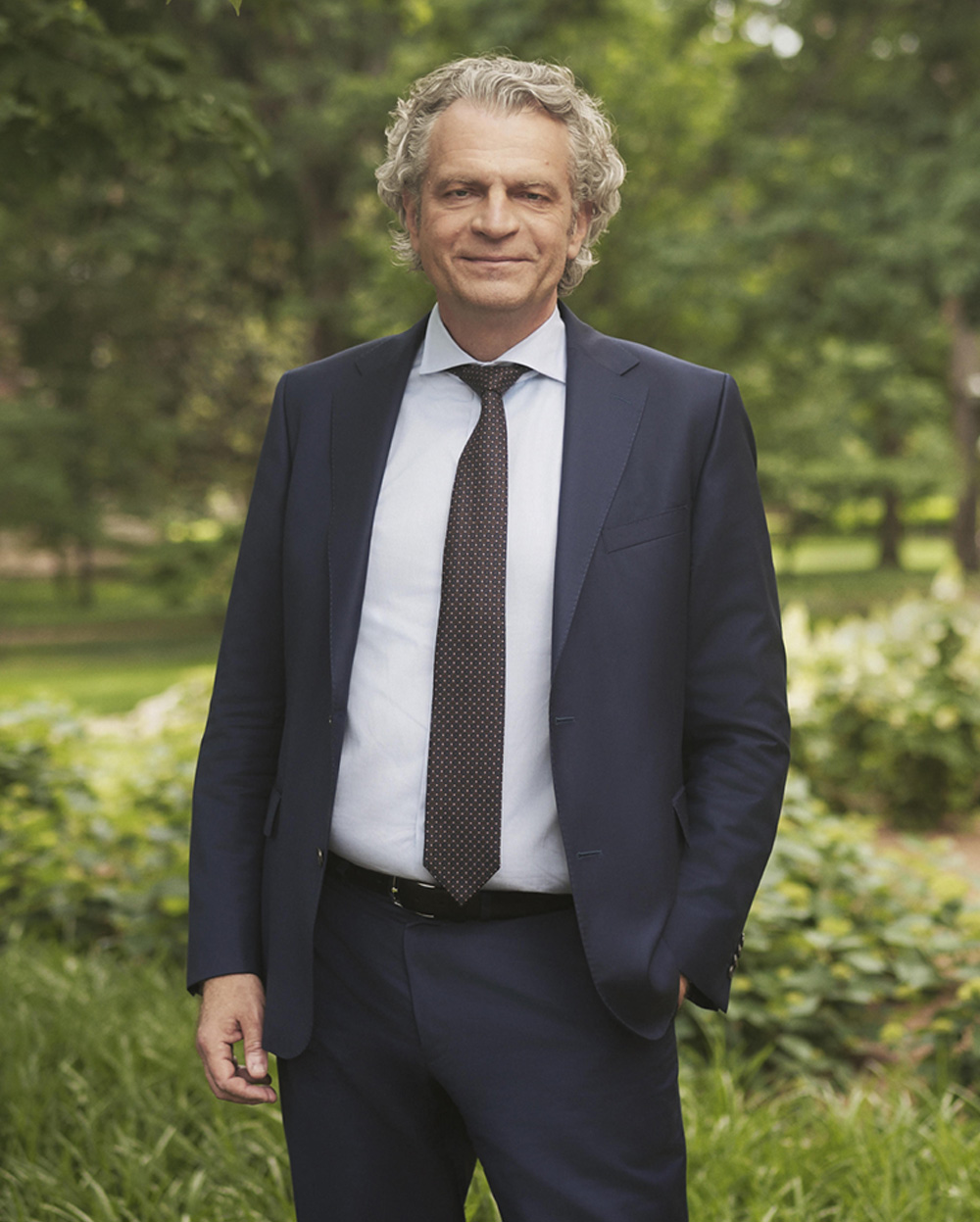An internationally renowned political scientist, management scholar and visionary leader, Diermeier is Vanderbilt’s ninth chancellor.
Vanderbilt named Diermeier chancellor in late 2019 after an extensive search by the Board of Trust. In May 2024, the Board of Trust extended Diermeier’s contract until 2035 “as a demonstration of our confidence in Chancellor Diermeier’s leadership and to support the realization of his long-term vision for the university.
Upon stepping into his role in July 2020, Diermeier immediately committed to safely and successfully bringing students back to campus during the COVID-19 pandemic, making Vanderbilt one of a very small number of the nation’s best universities to do so. Today, in the spirit of Vanderbilt’s motto, Crescere aude, or “dare to grow,” Diermeier leads an ambitious program of expansion and improvement, driving efforts to create a culture of radical collaboration and personal growth and to increase Vanderbilt’s presence and reputation both nationally and globally. During a time of unprecedented criticism of higher education, and with society facing urgent and even existential challenges, Chancellor Diermeier has been nationally recognized as a leader in free expression and civil discourse on college campuses and has eloquently made the case for the social value of universities and their unique role as engines of innovation, exemplars of civil discourse and educators of tomorrow’s leaders.
Since Diermeier was named chancellor, Vanderbilt has become a destination for the most promising students and faculty, attracting a record number of admissions applications, posting its highest percentage of admitted students attending and expanding financial aid through Opportunity Vanderbilt. It has topped the $1 billion mark in external research funding and set a university record for licensing revenue—surpassing traditional innovation leaders Stanford and MIT. Vanderbilt’s endowment has grown from $6.9 billion to more than $10 billion since Diermeier’s arrival and, in 2023, Vanderbilt launched a record $3.2 billion fundraising campaign, including Vandy United, a $300 million effort to re-imagine Vanderbilt athletics.
In 2022, the university launched Discovery Vanderbilt, a multimillion-dollar investment to ignite and expand the university’s capacity for innovation and discovery across disciplines. Clinton Global Initiative University selected Vanderbilt as its host in 2023, the same year the university launched a landmark celebration of its Sesquicentennial. In 2024, Vanderbilt announced it was a establishing the College of Connected Computing, its first new college since 1981.
Beyond campus, Chancellor Diermeier has spearheaded efforts to increase cross-sector collaboration and employ Vanderbilt’s innovative capacity to expand Middle Tennessee’s innovation economy. In the summer of 2024, Vanderbilt and the office of Nashville Mayor Freddie O’Connell established the Nashville Innovation Alliance, which aims to bring together public, private, civic and education institutions to collaborate in improving the region’s ecosystem for innovation and research. Diermeier has also grown partnerships and collaboration with the U.S. military and national security agencies. He has driven development of the annual Vanderbilt Summit on Modern Conflict and Emerging Threats and established the Vanderbilt Institute for National Security. He led development of the Vanderbilt Project on Unity and American Democracy and, in the fall of 2023, oversaw the launch of Dialogue Vanderbilt, a multifaceted initiative to promote civil discourse on campus and affirm Vanderbilt’s long-standing commitment to free expression.
In 2024, Vanderbilt introduced Nashville Vanderbilt Scholars, a partnership with Metro Nashville Public Schools that covers the direct costs of attending Vanderbilt for any MNPS students admitted to Vanderbilt through the early decision process who also qualifies for a Federal Pell Grant or whose parent income is $100,000 or less.
In addition to his role as chancellor, Diermeier is University Distinguished Professor in the Owen Graduate School of Management and Distinguished University Professor of Political Science in the College of Arts & Science. He is a fellow of the American Academy of Arts and Sciences and the Guggenheim Foundation. He has published six books and more than 100 research articles in academic journals—mostly in the fields of political science, economics and management, but also in linguistics, sociology, psychology, computer science, operations research and applied mathematics.
Throughout his career, Diermeier has proven to be a bold innovator, combining excellence as a leader, researcher and teacher with an entrepreneurial mindset. Before arriving at Vanderbilt, Chancellor Diermeier served in leadership roles at the Stanford Graduate School of Business, the Kellogg School of Management at Northwestern University and at the University of Chicago, where he served as dean of the Harris School of Public Policy. Chancellor Diermeier also served as director of the Ford Motor Co. Center for Global Citizenship and, in 2007, received the Aspen Institute’s Faculty Pioneer Award, called “the Oscars of the business school world” by the Financial Times.
A first-generation college graduate, Chancellor Diermeier earned a Ph.D. in political science from the University of Rochester. He also holds master’s degrees in political science from the University of Rochester and the University of Munich, and he earned a master’s degree in philosophy from the University of Southern California.
